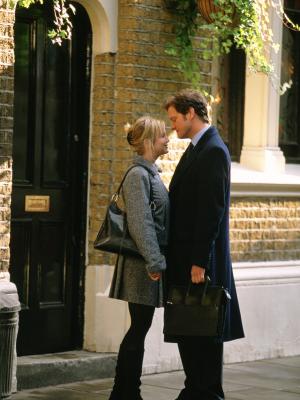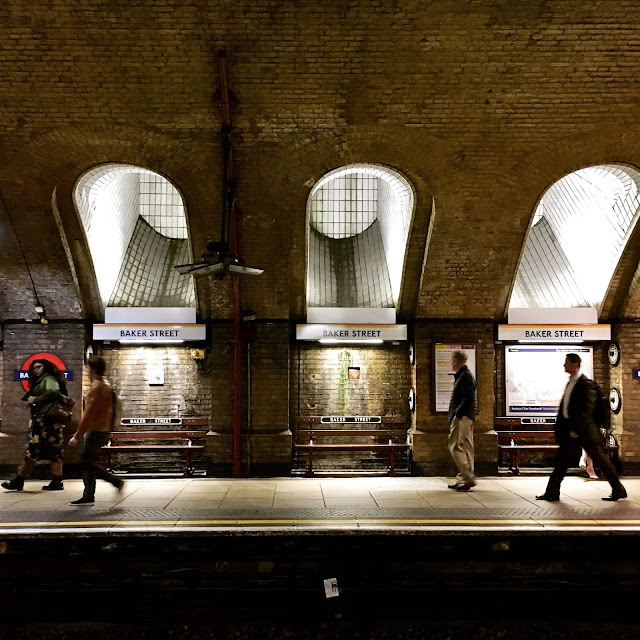Swept Away
I thought he was God. Or Robert Young on Father Knows Best. Take your pick. Except that in my eyes my father was even more glamorous than Robert Young. I didn't know about God.
He and my mother met at the tail end of World War II when he was home on leave in England. He wooed her in French, Italian, Spanish, and Arabic and he danced like a movie star. They fell in love and then he went away again, back to the western desert, back to the end of the war. Her family, her friends, all warned her about him. He was no good. He'd been around. She was only twenty. He was thirty. Forget him, he was too old. At thirty, her grandmother pronounced, he would have done everything already. He would be jaded, world-weary, they'd have little to share together. Forget him.
She couldn't forget him. He sent stockings, Italian shoes, and letter after letter from the prisoner of war camp in North Africa where he was coaching the Italian prisoner's football team. He came home and three years after they met they were married.
When my brother, sister and I were young and my parents entertained — a fifties word if ever there was one — I could be found peeking from behind a chair, dazzled as my father glided my mother around the floor, confident and in command. The way he whisked our mother across the kitchen, with just a slightest pressure on the back, it was easy to see he was the kind of man that swept a woman off her feet. I thought he was perfect, but of course he wasn't.
Edward, Ed, Eddie she called him, or 'your father' depending on the mood; they argued with the same gleeful gusto with which they danced, breaking into shrill tones and striking defensive notes out of the blue. Then, just as effortlessly as they switched from a foxtrot to a rhumba, they kissed each other sorry and made up moments later.
He was made more glamorous by his absences. Our poor mother. Our father was always taking off on some business trip or other leaving her to hold down the fort. He'd come home, wherever home was, a week, a month, three months later, to our excited squeals of Daddy's home! Daddy's home! treasures tucked between his shirts and ties. From Spain he brought black kid gloves that went past my mother's elbows; she kept them wrapped in tissue paper in her top drawer, a poor hiding place if it was meant to stop Nancy and me from sneaking in and trying them on, slipping our skinny arms deep down into their velvety softness, caressing ourselves with our own floppy gloved hands, our fingers too small to fill out the suede fingertips. We'd been given curvy Spanish dolls, a resplendent pair of Flamenco dancers over a foot high, dressed in black and red lace, holding miniature castanets but it was our mother's gloves we coveted. My brother got a bullfighting poster — the seed planted for running with the bulls in Pamplona years later — and a book with a little round vinyl disc so thin you could bend it. You were supposed to play it on your record player while you looked through the book full of fascinating facts and glossy pictures of Spain. It was the coolest thing I'd ever seen. Our dad's homecoming was always something to look forward to. Like I said, I thought he was God.
He wasn't though, clearly. He's been gone twenty two years this past January. But this isn't about that. This is about my dad, standing at the kitchen sink doing the washing up, an apron over his grey slacks, the sleeves of the white dress shirt he wore under a soft burgundy sweater vest, rolled up, his tie neatly knotted, a pair of burgundy leather slippers he'd received from one of us on some Father's Day or other, on his feet, moved suddenly by a song on the stereo, to bust out singing and shuffle a little soft shoe.
Thanks for the memories dad, this one's for you.
He and my mother met at the tail end of World War II when he was home on leave in England. He wooed her in French, Italian, Spanish, and Arabic and he danced like a movie star. They fell in love and then he went away again, back to the western desert, back to the end of the war. Her family, her friends, all warned her about him. He was no good. He'd been around. She was only twenty. He was thirty. Forget him, he was too old. At thirty, her grandmother pronounced, he would have done everything already. He would be jaded, world-weary, they'd have little to share together. Forget him.
She couldn't forget him. He sent stockings, Italian shoes, and letter after letter from the prisoner of war camp in North Africa where he was coaching the Italian prisoner's football team. He came home and three years after they met they were married.
When my brother, sister and I were young and my parents entertained — a fifties word if ever there was one — I could be found peeking from behind a chair, dazzled as my father glided my mother around the floor, confident and in command. The way he whisked our mother across the kitchen, with just a slightest pressure on the back, it was easy to see he was the kind of man that swept a woman off her feet. I thought he was perfect, but of course he wasn't.
Edward, Ed, Eddie she called him, or 'your father' depending on the mood; they argued with the same gleeful gusto with which they danced, breaking into shrill tones and striking defensive notes out of the blue. Then, just as effortlessly as they switched from a foxtrot to a rhumba, they kissed each other sorry and made up moments later.
He was made more glamorous by his absences. Our poor mother. Our father was always taking off on some business trip or other leaving her to hold down the fort. He'd come home, wherever home was, a week, a month, three months later, to our excited squeals of Daddy's home! Daddy's home! treasures tucked between his shirts and ties. From Spain he brought black kid gloves that went past my mother's elbows; she kept them wrapped in tissue paper in her top drawer, a poor hiding place if it was meant to stop Nancy and me from sneaking in and trying them on, slipping our skinny arms deep down into their velvety softness, caressing ourselves with our own floppy gloved hands, our fingers too small to fill out the suede fingertips. We'd been given curvy Spanish dolls, a resplendent pair of Flamenco dancers over a foot high, dressed in black and red lace, holding miniature castanets but it was our mother's gloves we coveted. My brother got a bullfighting poster — the seed planted for running with the bulls in Pamplona years later — and a book with a little round vinyl disc so thin you could bend it. You were supposed to play it on your record player while you looked through the book full of fascinating facts and glossy pictures of Spain. It was the coolest thing I'd ever seen. Our dad's homecoming was always something to look forward to. Like I said, I thought he was God.
He wasn't though, clearly. He's been gone twenty two years this past January. But this isn't about that. This is about my dad, standing at the kitchen sink doing the washing up, an apron over his grey slacks, the sleeves of the white dress shirt he wore under a soft burgundy sweater vest, rolled up, his tie neatly knotted, a pair of burgundy leather slippers he'd received from one of us on some Father's Day or other, on his feet, moved suddenly by a song on the stereo, to bust out singing and shuffle a little soft shoe.
Thanks for the memories dad, this one's for you.


